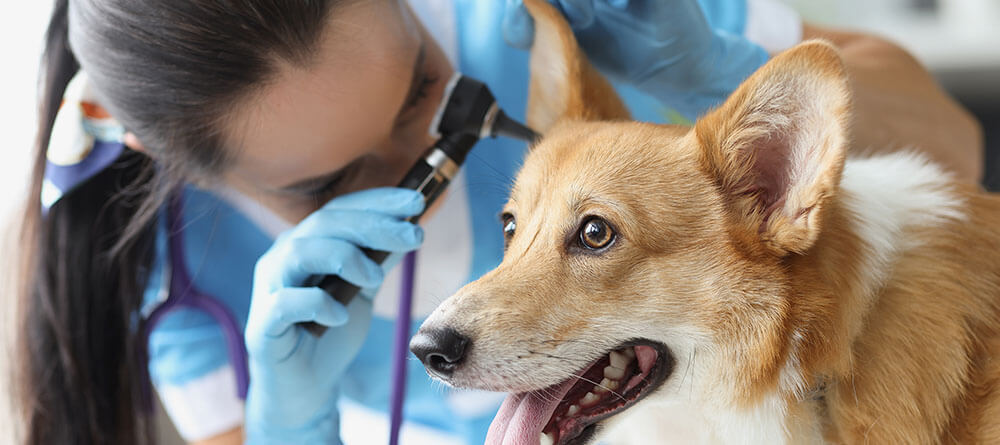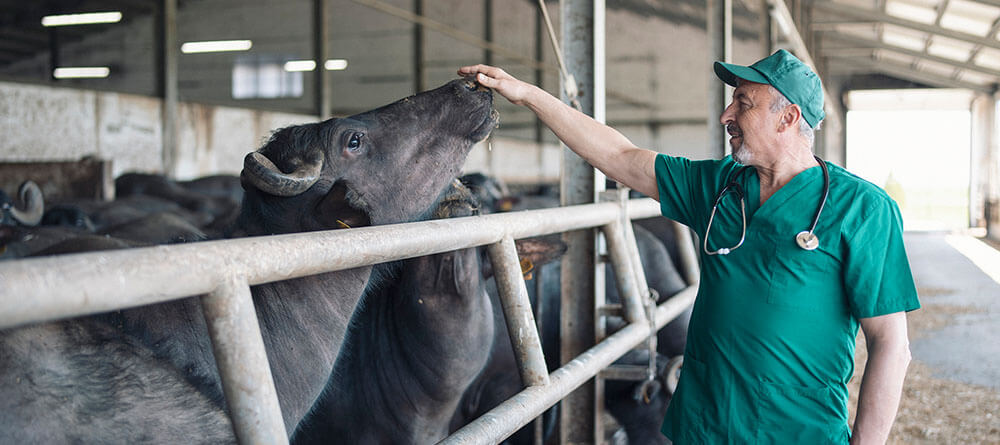Your undeniable interest in science and love for animals make pursuing a career as a veterinarian a natural choice. But before diving in head-first, you likely still have a few questions that need answering.
How much do veterinarians make? What exactly does life as a veterinarian entail? Where do veterinarians typically work?
To venture forward with confidence, you’ll need the full picture of what this career path is like. That’s why we’re tackling some of the most common questions about what it’s like to be a veterinarian. Join us as we explore the details of this animal-focused role.
What is it like to be a veterinarian? 5 Common questions
As you plan your future as a vet, there are some key elements of the profession you’ll want to explore. From veterinarian salary potential to education requirements, consider the following.
1. How much do veterinarians make?
One of the most common questions about working in veterinary medicine is what a typical veterinarian salary range is. Income among vets varies, but 2021 data from the US Bureau of Labor Statistics (BLS) revealed a median annual wage of $100,460.
Some of the most prominent factors that will impact a veterinarian’s salary are geographic location and years of experience. Compensation can also depend on a practitioner’s specific area of focus. Those who work in management, consulting, and research development, for example, are typically the most generously compensated among veterinarians, according to the BLS.

2. What do veterinarians do?
The exact scope of a veterinarian’s job duties will depend on which career path they choose. Many vets work exclusively with pets. Dr. Pippa Swan, senior veterinary advisor at UK-based Cloud 9 Vets, is among this group. She says a typical day can involve a vast range of duties.
“Companion animal vets generally spend their days providing preventative health care, performing planned surgery, and responding to the needs of clients who bring in animals that are unwell or have experienced trauma,” Dr. Swan explains.
Like doctors who work with human patients, veterinarians focus quite a bit on preventative medicine. Being proactive about health management can help promote longevity and quality of life. Dr. Swan also notes that administering vaccinations, performing dental checks, and helping with parasite control are pretty standard duties in her role.
Working with animals is obviously a large part of being a veterinarian, but being skilled at interacting with people is also necessary. “A significant portion of the day is spent talking to clients, both face-to-face and on the phone,” Dr. Swan says. “Communication and liaison are also required between vets and the rest of the practice team.”
3. What are some of the different types of veterinarians?
When people think about veterinarians, most envision companion animal practitioners. And there are many veterinarians who work solely with pets. In fact, the American Veterinary Medical Association (AVMA) reports that more than 70 percent of US veterinarians focus their practice predominantly or exclusively on companion animals.
But there’s a vast number of other veterinary career options you can pursue. Dr. Swan notes that vets in clinical practice tend to work with companion animals, farm animals, horses, or even all of the above. “Some vets work in all three areas and are called mixed-practice vets,” she explains.
Veterinarians have the opportunity to focus on a specific type of animal or a particular branch of veterinary medicine. They can also work in regulatory roles within the government, among many other sectors that employ veterinarians. “Some vets work in an industry: pharmacology, nutrition, or research,” Dr. Swan says. “There is also a charitable sector, and vets work for organizations providing free healthcare, rescue and rehabilitation, and welfare.”
Overall, the AVMA recognizes 22 distinct specialties within veterinary medicine, ranging from anesthesia to zoological medicine.

4. What are the standard veterinarian education requirements?
Obtaining a four-year undergraduate degree isn’t required prior to attending veterinary school, but it is generally recommended. Most schools list a number of course prerequisites that you’ll need to complete, and earning a degree can be the most effective way to accomplish that.
It’s worth noting that some veterinary schools have pre-vet tracks that can guide you through the necessary prerequisites. St. George’s University (SGU), for example, offers five-, six-, and seven-year Doctor of Veterinary Medicine (DVM) program options that assist students in amassing the baccalaureate qualifications they’ll need to pursue their veterinary degrees.
In addition to prerequisite coursework, you should also focus on gaining animal and veterinary experience before applying to vet school. This is a core admission requirement for most DVM programs, but it’s also an effective way to make sure you truly understand what the career path entails.
You’ll then need to gain acceptance into a veterinary program to obtain your DVM. After graduation, you’ll also need to pass the North American Veterinary Licensing Examination (NAVLE) and complete any other location-specific requirements in your area. Finally, if you choose to pursue a specialty, you may need to complete some additional training.
Visit our article to learn more information on veterinary education requirements.

5. What are the most important veterinarian skills?
Veterinary medicine is a very multifaceted field. Those who pursue a veterinary career will need to draw upon a robust and diverse skill set if they hope to be successful practitioners. You’ll need a firm scientific background coupled with proficient problem-solving skills. Veterinarians today also need to be proficient in numerous types of technology, while softer competencies like communication skills will always remain important.
“You need the ability to work out what people are really saying in the midst of chaotic situations when guilt, strong attachment, love, fear, and anger are often close to the surface or in full view,” Dr. Swan explains. She points out that in addition to utilizing these skills with pet owners, good communication with colleagues is also necessary to ensure solid working relationships.
Veterinarians also need to draw upon their adaptability regularly, as they may find themselves facing something unexpected at any moment. “Life in clinical practice is a very inexact science and will require a good deal of art mixed in,” Dr. Swan offers. Mental toughness, realism, self-esteem, and a sense of humor, she says, are important building blocks for a successful career.
Pursue your future in animal care
How much do veterinarians make? How do you become a veterinary practitioner? What skills do you need to be successful? Now that you have answers to these common pre-vet queries, you should feel more confident to move forward in your pursuit to become a veterinarian.
As you move forward in this exciting venture, there will be a number of things you’ll want to keep in mind. Learn more about what to focus on and what to avoid by reviewing our article “The Do’s and Don’ts of Applying to Vet School.”
*This article was originally published in 2019. It has since been updated.

